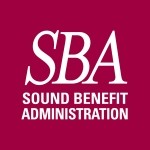Transportation Plan Administration
What we do
Transportation plans are a growing benefit and will soon be required for many employers in the city of Seattle. SBA provides plan documents and enrollment information as well as managing contribution limits and provides ongoing reporting.
What is a Qualified Transportation Plan?
This plan, under Section 132 of the IRS code, allows employees to pay for incurred transit and parking expenses with pre-tax dollars (including federal, Social Security and Medicare taxes).
Why SBA for Transportation Plan Administration?
A transportation plan is often in addition to other plans administered by SBA, such as FSAs, HSAs, HRAs, POPs and COBRA. Using SBA for multiple plans means less paperwork for the employer. Additionally, for employers that offer employees a debit card, SBA’s debit card works across multiple plans, including Transportation, HSAs and FSAs.
What should you know about Seattle’s Transit Benefit Ordinance?
If you are an employer within the Seattle City limits or you are an employer with employees who travel to Seattle and spend at least 10 hours per week in Seattle, you may be required to offer the transit benefit beginning January 1, 2020. Employers with more than 20 employees are subject to the Seattle City Ordinance passed in 2018. If you already offer transit relief to your employees, this meets the ordinance requirement. If your employer-paid transit reimbursement is less than the monthly statutory limit, employees may need to pay the balance of their transit expenses with pre-tax dollars through this plan.
For ongoing Transportation Plan administration:
- Employees will need to complete election forms before the first month of the plan. The election form will identify the specific amount to be deducted from each pay period.
- The employer will notify their payroll department or payroll company of these deductions.
- The employer will need to fund the debit card account, if elected.
- Enrollment materials provided by SBA will need to be distributed to all participants so they can go online and see their balances or substantiate claims.
- SBA will provide monthly reports to the employer and quarterly reports to the participants.
Search
Our latest subject matter articles
Question of the month: After termination, when do pre-tax programs end?
When an employee terminates, pre-tax programs don’t necessarily follow the same timelines as medical plans. Gina explains.
COVID-19 Pandemic: the impact on Alphabet Soup programs
These are uncertain times, and we may not know all the answers, but here is what we do know about how the Coronavirus outbreak is impacting all the alphabet soup programs.
Just the FAQs – Seattle’s Commuter Benefits Ordinance
On January 1, 2020, employers in Seattle with more than 20 employees (worldwide) will need to comply with the new transit ordinance. Here are all the answers to the burning questions about the Ordinance, and a key unanswered question as well.
Have employees in Seattle? What employers need to know about the new Transit Benefits Ordinance.
The Seattle City Council just passed an ordinance required employers to offer a Qualified Transportation Plan. Regardless of where you are based, if you have employees working in Seattle, you need to read this.
Qualified Transportation Plans: Help employees go green, avoid traffic and save money!
As companies and employees struggle with traffic in our region, a Qualified Transportation Plan could offer some tax relief! Learn more.




